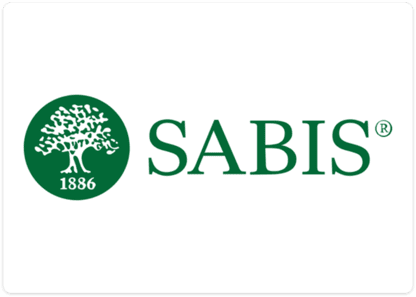
The SABIS® Educational System is a globally recognized academic model that has been successfully implemented in both private and public schools across the world. Headquartered in Lebanon and the United States, SABIS® is not a traditional curriculum but a comprehensive, proprietary school system that blends curriculum, teaching methodology, and technology into one holistic solution.
The SABIS® model is structured, rigorous, and performance-driven, with a mission to deliver high-quality education that prepares students for global success. It adapts to local education regulations while maintaining its core philosophy of academic excellence and innovation.
Starting from Kindergarten, SABIS® follows a skill-based, developmental curriculum. Early learners focus on phonics, numeracy, and motor skills. As students advance, they follow a structured academic path that includes:
The curriculum is enhanced through the SABIS® Digital Platform, a proprietary e-learning suite that supports instructional delivery, student performance tracking, and individualized learning paths.
One of SABIS®’s defining features is its frequent, low-stakes testing approach. Students undergo regular assessments that help identify learning gaps in real-time. This system enables:
In high school, students may choose from internationally recognized qualifications such as:
The choice depends on the school's region and the student’s academic goals, providing flexibility and maintaining a high academic trajectory.
SABIS® places strong emphasis on student leadership and holistic growth. Through the SABIS® Student Life Organization, students:
This fosters skills in leadership, discipline, and teamwork.
Teachers in SABIS® schools utilize structured resources such as pacing charts, digital diagnostics, and the SABIS® Academic Monitoring System (AMS). These tools allow:
Graduates of the SABIS® Educational System are well-prepared for admission into top global universities. They leave the system with:
The SABIS® Educational System is more than just a curriculum—it’s a comprehensive educational model that combines academic excellence, structured methodologies, technological integration, and character development to prepare students for success in a dynamic world.
The SABIS® Educational System traces its origins back to 1886, when the International School of Choueifat was established in the village of Choueifat, Lebanon, by Ms. Louisa Procter, an Irish educator. Initially catering to girls, the school soon expanded its reach and philosophy, laying the groundwork for a comprehensive academic system.
By the 1970s, SABIS® had evolved from a single school into a multinational educational organization, with the founding of schools in the United Arab Emirates. The first SABIS® school outside Lebanon opened in Sharjah in 1976, paving the way for international growth. Over the following decades, SABIS® expanded into multiple continents including North America, Europe, Africa, and Asia, making it a global education brand.
SABIS® developed a unique system combining rigorous academic instruction with technology, student engagement, and regular assessments. Its hallmark was the blending of direct instruction with student-managed activities, fostering independence, accountability, and critical thinking.
The 1990s and 2000s marked the digitalization of the SABIS® system. The introduction of the SABIS® Digital Platform and Academic Monitoring System revolutionized classroom delivery and performance tracking. By 2020, SABIS® schools operated in over 20 countries, educating tens of thousands of students.
Today, SABIS® continues to innovate while maintaining its foundational commitment to academic excellence and student development. The organization stands as a pioneer in performance-based, data-driven education, making a lasting impact on students around the globe.
SABIS® is a privately held, for-profit educational organization headquartered in both Adma, Lebanon, and Minneapolis, USA. It operates as both a school owner and an education service provider. Schools using the SABIS® system may be directly managed by the SABIS® network or operate as licensed institutions adopting the SABIS® methodology under a franchise or partnership model.
All affiliated SABIS® schools follow the core SABIS® Educational System, which includes access to the SABIS® curriculum, the proprietary SABIS® Digital Platform, academic pacing tools, performance tracking software, and teacher training programs. Affiliation with SABIS® ensures compliance with the organization’s global standards, quality benchmarks, and academic accountability.
SABIS® is not affiliated with any government board but maintains international credibility by aligning its curriculum to national regulations and international benchmarks. High school students in SABIS® schools are prepared for standardized qualifications such as IGCSEs, A Levels, AP exams, and the American High School Diploma, depending on regional requirements.
Affiliated schools undergo regular audits, compliance checks, and teacher evaluations. Additionally, all SABIS® staff are trained in the organization’s instructional methods, use of AMS (Academic Monitoring System), and student intervention strategies.
The SABIS® name signifies consistency, reliability, and results, offering families around the world a high-quality, structured education that ensures readiness for higher education and beyond.
SABIS® schools conduct frequent internal assessments and utilize the proprietary SABIS® Academic Monitoring System (AMS) to evaluate student progress. Weekly assessments and check-points are integrated into the curriculum to ensure concept mastery and early detection of learning gaps.
SABIS® prepares students for various internationally recognized qualification pathways, depending on the country of operation. These include:
Exams are scheduled during global examination windows, typically in May/June and October/November.
Assessment in SABIS® is both continuous and standardized. Students are benchmarked using performance data, and real-time feedback is provided to guide improvement. The assessment structure includes:
This dual-assessment system fosters accountability and enhances learning outcomes. It motivates students to develop strong test-taking skills, independent study habits, and academic confidence.
The SABIS® Educational System follows a multifaceted approach to assess student readiness and ensure mastery before progression.
SABIS® awards internal promotion certificates and tracks term-wise academic achievements. If a student does not meet the minimum benchmarks:
Conclusion: SABIS® ensures all students attain the necessary academic standards through a blend of continuous internal assessments and external certifications. This approach guarantees mastery and promotes student success at each stage of their academic journey.